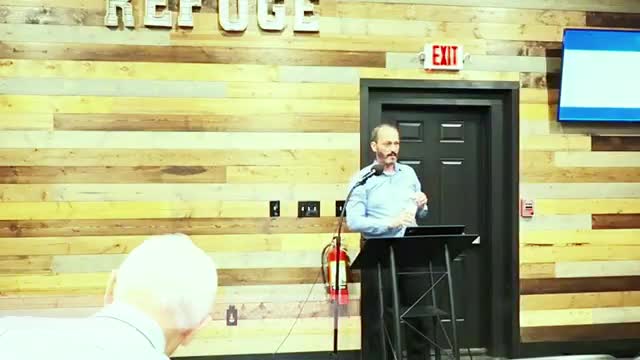Speaker warns local audience an Article V convention could exceed limits and reshape the Constitution
Get AI-powered insights, summaries, and transcripts
Subscribe
Summary
Robert Brown, a national spokesman for constitutional issues and a member of the John Birch Society National Speakers Bureau, told a Davis County conservative meeting that an Article V "convention of states" could exceed limits set by state legislatures and potentially "be wholly abortive of the constitution."
Robert Brown, a national spokesman for constitutional issues and a member of the John Birch Society National Speakers Bureau, told a Davis County conservative meeting that an Article V "convention of states" could exceed any limits set by state legislatures and potentially "be wholly abortive of the constitution." Brown spoke after brief housekeeping announcements and a formal introduction by Janice Martin.
Brown told attendees the U.S. Constitution provides two amendment routes under Article V: one in which Congress proposes amendments and one in which, "upon the application of the legislatures of two-thirds of the states, Congress shall call a convention for proposing amendments." He said proponents of modern conventions emphasize limited topics — for example, term limits or a balanced-budget amendment — but that historical precedent shows conventions can transform into broader gatherings that submit wholesale changes to the people for ratification.
"Having witnessed the difficulties and dangers of the first convention," Brown quoted James Madison, "I should tremble for the result of a second convention meeting in the present temper of America." He argued Madison's warnings are often omitted by modern advocates and that the 1787 convention’s delegates and subsequent ratification process set a precedent for a convention to operate as "a convention of the people," rather than remain strictly limited by state commissions.
Brown reviewed the historical record he said is relevant: state commissions that authorized delegates in 1787, delegates’ debates over the Virginia Plan, and the delegation of ratification to popular conventions under Article VII of the new Constitution. He said some delegates explicitly questioned whether their commissions authorized wholesale constitutional revision, while others proceeded on the basis of necessity and then submitted the new plan to the people for ratification. He summarized the practical outcome this way: a convention that begins as "a convention of the states" can, in his characterization of the precedent, become a "convention of the people" and propose a new, fully rewritten document that the people may approve or reject.
Brown also played and critiqued an audio clip of a Convention of States proponent asserting that many 1787 state commissions granted delegates "any and all authority." Brown disputed that reading of the record and offered a published challenge to produce a commission using that exact language.
Turning to present-day risks, Brown warned that modern factors — state legislatures selecting delegates, large-scale lobbying, live-stream or secrecy decisions, doxxing and organized protests, and even foreign actors — could change the outcome of a convention or coerce delegates. He told the audience Utah had two Article V applications on file (one from the Convention of States movement and one narrowly worded balanced-budget application) and reported that nationwide applications toward the 34-state threshold were in the high 20s depending on counting method; he characterized the Convention of States' organized application count at roughly 19 states.
Audience members asked about primary sources and how to verify historical claims; Brown recommended Madison's notes, the Federalist Papers and original state ratifying debates and offered handouts and QR codes linking to materials and local classes aimed at civic education. He also urged local advocacy, describing a "power of 500" tactic — coordinated constituent pressure to change a single legislator's behavior — as an alternative to altering the Constitution.
Brown closed by distributing informational cards and urging attendees to contact state legislators and to participate in local education programs. Janice Martin introduced Brown at the meeting, and the event included announcements about local "truth in taxation" hearings and a public hearing on a proposed redistricting initiative.
